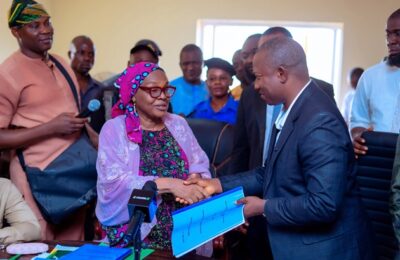In a country where millions wake each morning unsure of where the next meal will come from, headlines about the flamboyant weddings of Nigeria’s political elites cut like a knife. As former aviation minister Femi Fani-Kayode (FFK) and ex-Kogi governor Yahaya Bello continue to make headlines—not for reforms, but for romance—the ordinary Nigerian bachelor remains trapped in a cycle of poverty, hunger, and hopelessness.
“How can we be in the same country where one man marries his sixth wife in a private jet, while I can’t afford to pay ₦20,000 for bride price?” laments David Arome, a 33-year-old teacher in Kogi State. “Are they harvesting wives while we’re harvesting debts?”
This isn’t satire—it’s the deepening reality of Nigeria’s wealth gap, where political figures live like emperors while citizens survive like exiles in their own land. The recent buzz around Yahaya Bello’s rumoured marital celebration—with fleets of exotic cars and luxury suites—and FFK’s social media serenades to yet another new bride, only add insult to injury in a country groaning under the weight of inflation, unemployment, and insecurity.
“Let them enjoy their wives; I just need food and safety,” said Halima Usman, a single mother of two in Kano. “My husband died because a government hospital had no oxygen. But these men, they marry like kings and feed like gods.”
Nigeria’s ₦1000 naira has being reduced to ₦100, and minimum wage is nothing to write home about, yet some political weddings reportedly gulp over ₦200 million in logistics alone. That amount could fund dozens of boreholes, scholarships, or community health centers in rural Nigeria. But as far as the elite are concerned, optics outweigh impact.
“When leaders make love headlines while their people make obituary headlines, we have a leadership crisis,” said Pastor Sam Adeyemi, senior pastor of Daystar Christian Centre, during a youth empowerment summit in Abuja.
Yahaya Bello, facing corruption allegations and still enjoying the camaraderie of political allies, made waves not just for alleged financial misconduct, but for throwing lavish celebrations amidst national economic ruin. On social media, many criticized what they called a “wedding of shame in a republic of pain.”
“These people are not in power to lead; they’re in power to loot and lust,” tweeted @OdogwuNaija, a popular civic commentator. “How many civil servants in Kogi got married last year without borrowing or begging?” Some are even having stroke and facing screening.
FFK, known more in recent years for his poetic Facebook posts and serial marriages than for his political consistency, has remained largely unbothered. To him, love is a shrine and private—but in a nation where everything is public suffering, nothing stays truly private.
“In the land of plenty, some die of lack,” wrote Bishop Matthew Hassan Kukah in his Easter message earlier this year. “The problem isn’t that we don’t have resources. It’s that we’ve mistaken leadership for lordship and governance for greed.”
The gory contradiction in Nigeria today is that bachelors pray not for love, but for money—because love without resources is useless in a country where inflation has turned tomatoes into treasures and rent into ransom.
“My fiancée left me because I couldn’t raise ₦100,000 for her family’s demands,” said Efe Ekene, a commercial bike rider in Delta. “Yet Yahaya Bello is reportedly marrying wives like it’s a long awaited dreams.”
This paradox of privilege and poverty isn’t new, but it’s growing. The same country that couldn’t afford ₦8,000 monthly stipends for poor families during fuel subsidy removal now watches its politicians sponsor multi-million naira wedding galas.
“Leadership in Nigeria is no longer service; it’s showbiz,” said Prof. Chidi Odinkalu, former chairman of Nigeria’s Human Rights Commission. “They rule like Nollywood stars—scripted, surreal, and selfish.”
The biblical Job once declared, “When the wicked are in authority, the people groan.” That groaning is now the soundtrack of Nigeria’s youth—bachelors whose only wedding venue is their dreams, and whose only dowry is disappointment.
Until the day governance becomes responsibility again—and not royalty—Nigeria will keep producing politicians who marry for show, while the people remain unmarried to progress.
– Inah Boniface Ocholi writes from Ayah – Igalamela/Odolu LGA, Kogi state.
08152094428 (SMS Only)




